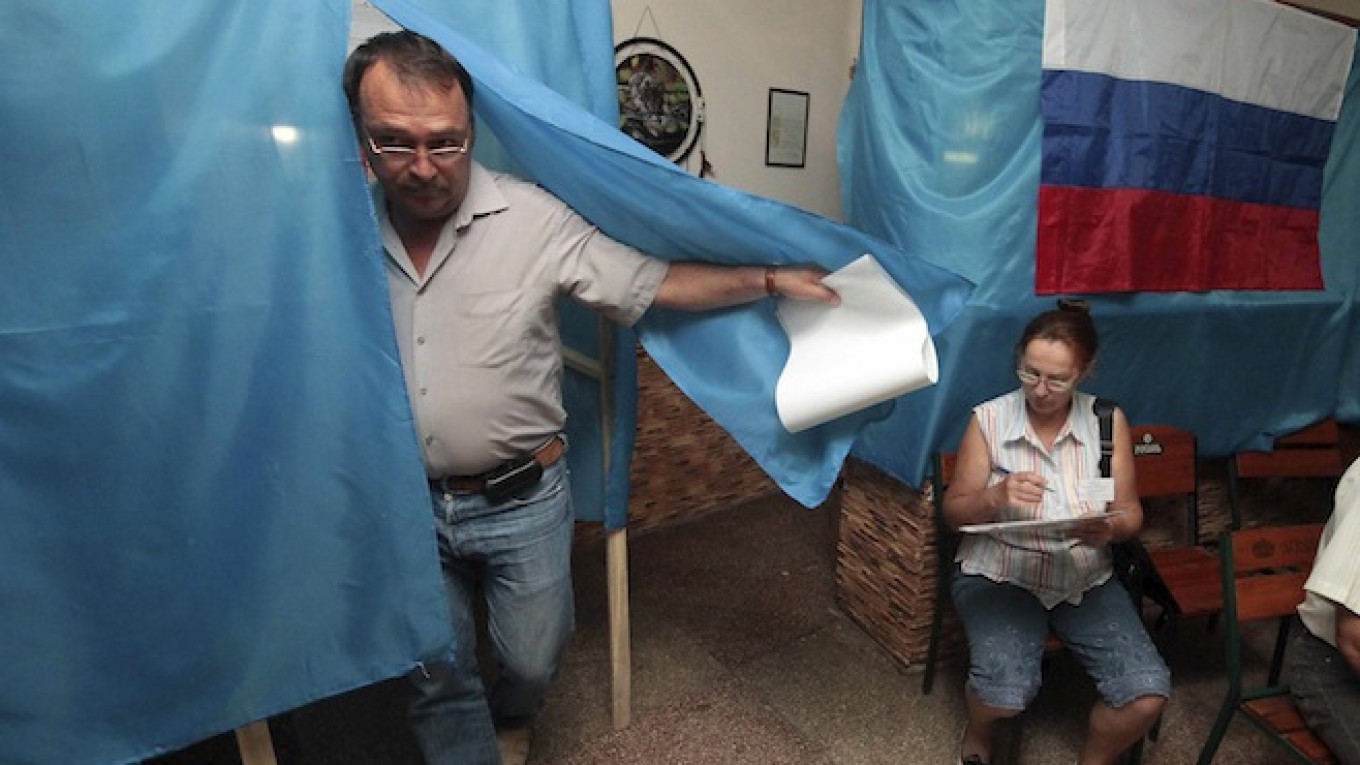Russia's statistics agency on Tuesday launched a sweeping census of the population in the Crimea region, which the country annexed from Ukraine in March.
Residents will be asked to field 33 questions about their age, ethnicity, marital status, children, native language, housing and income, the regional branch of the State Statistics Service said on its website.
The census, which is due to be completed by Oct. 29, aims to include every resident of the region.
The project will cost Russia 400 million rubles ($10 million) in federal funds, the Moskovsky Komsomolets newspaper said last week. About 8,500 census takers will be deployed on the ground.
The last census was held in Crimea in 2001 as part of the nationwide Ukrainian census.
Crimea's population was 2.4 million at that time, including 570,000 ethnic Ukrainians and 240,000 Crimean Tatars, the region's indigenous people.
The Tatars, brutally oppressed by Moscow in Soviet times, largely opposed the annexation of the peninsula in March, conducted after a Russian military takeover.
The minority has since been at odds with the new authorities, who have banned several Tatar leaders from their homeland on charges of "extremism," echoing Soviet-era crackdowns.
But a prominent Tatar speaker, Crimea's deputy mufti Ruslan Bairov, said the ethnic minority would not boycott the census, the State Statistics Service said on its page on the VKontakte social network Monday.
Pundits say the Kremlin is still undecided on its policy toward the Crimean Tatars, wavering between whether to placate or suppress them.
Russia has earmarked 373 billion rubles ($9 billion) for Crimea in 2015-17. The State Statistics Service said the census will help determine the allocation of those funds.
The agency said it expects to present the preliminary results of the Crimea census in November.
A Message from The Moscow Times:
Dear readers,
We are facing unprecedented challenges. Russia's Prosecutor General's Office has designated The Moscow Times as an "undesirable" organization, criminalizing our work and putting our staff at risk of prosecution. This follows our earlier unjust labeling as a "foreign agent."
These actions are direct attempts to silence independent journalism in Russia. The authorities claim our work "discredits the decisions of the Russian leadership." We see things differently: we strive to provide accurate, unbiased reporting on Russia.
We, the journalists of The Moscow Times, refuse to be silenced. But to continue our work, we need your help.
Your support, no matter how small, makes a world of difference. If you can, please support us monthly starting from just $2. It's quick to set up, and every contribution makes a significant impact.
By supporting The Moscow Times, you're defending open, independent journalism in the face of repression. Thank you for standing with us.
Remind me later.


